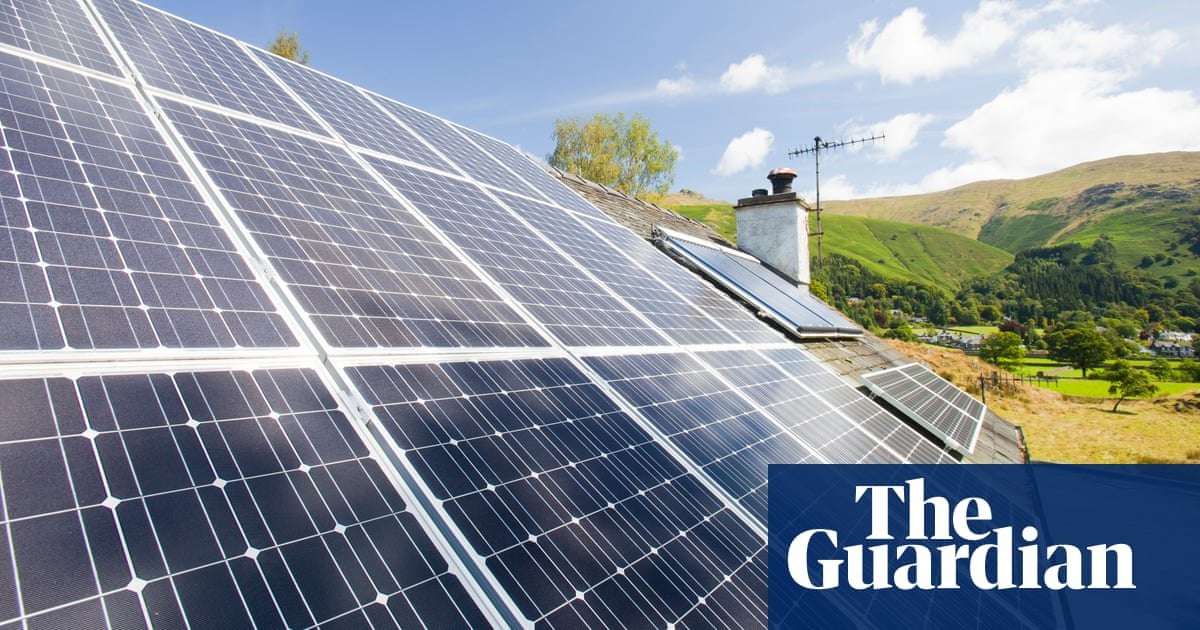New research has proposed a cost-effective way to recycle solar panels to help handle an increasing volume of retired photovoltaic (PV) cells expected by the end of the decade.
In a paper published by a team from the University of New South Wales last week, researchers outlined a process to collect and extract valuable materials from solar arrays to see if it was technically, economically and environmentally feasible.
The process involves collecting solar arrays, stripping them of their aluminium frame, shredding the cells and using an electrostatic separation to collect valuable materials including silver and copper, reducing the panels to 2%-3% of their original weight.
The reclaimed material would then be shipped directly to a refinery for purification and processing.
Dr Pablo Dias, lead author on the study, said it showed it was possible to run a low-volume facility capable of managing 1,000 tonnes of solar panels a year. This is roughly equivalent to 50,000 panels a year, or about 4,100 panels a month.
“This is something someone can pick up elsewhere, it doesn’t use any chemicals, it doesn’t emit any pollution or hazardous pollution. It produces dust from crushing the panels, but you have dust collectors there,” Dias said.
Currently Australia has very little capacity to process and recycle solar panels when they reach the end of their life span. This is considered an increasingly pressing problem as the high uptake of rooftop solar and proposals for large-scale solar farms means a growing number of panels will reach the end of their lifespan.
A 2016 report by the International Renewable Energy Agency (Irena) found large-scale and early adopters of PV solar could expect the largest volumes of waste from old systems.
Australia was projected to generate 145,000 tonnes a year of PV solar waste by 2030, with the US expecting 1m tonnes a year and China 1.5m tonnes.
Dias said smaller-scale facilities were important as they could process material closer to their source before sending it on, reducing emissions from transport.
“You could do this in a suburb in South Australia, concentrate the valuable material and then send it directly to the refiners who do extracting and purifying the metals,” he said.
He has also since moved to put the research into practice via a start-up company, Solarcycle, which is building a facility in Texas in the US. It is expected to be operational by November.
Sign up to Guardian Australia's Morning Mail Free daily newsletter Our Australian morning briefing email breaks down the key national and international stories of the day and why they matter Privacy Notice: Newsletters may contain info about charities, online ads, and content funded by outside parties. For more information see our Newsletters may contain info about charities, online ads, and content funded by outside parties. For more information see our Privacy Policy . We use Google reCaptcha to protect our website and the Google Privacy Policy and Terms of Service apply.
Prof Peter Majewski, from the Future Industries Institute at the University of South Australia, who was not involved in the research, said it made “absolute sense” but cautioned against a one-size-fits-all approach.
“It’s necessary to develop a robust recycling technology and industry in that space because we’re just going to face a huge amount of solar panels coming in,” Majewski said.
“It is worthwhile to look at all different scenarios at the moment – we need to develop various ways of recycling.”
Majewski said that though there was a need to think about how to process end-of-life solar panels, it was a “solvable problem” that could be fixed with a stewardship scheme that made clear who was responsible and rules for disposing of them.
“With solar panels and wind, waste is often highlighted as this problem in a way it’s not with other discussions,” Majewski said. “Many technologies are producing waste. We can manage it. It’s a question of legislation and technology.”

Hawk---- on October 16th, 2022 at 12:35 UTC »
I'm gonna be that guy here. The problems around cost are solely down to our Capitalist culture, and can be utterly countered by State subsidies like those offered in places like China. Which, ironically enough, is where almost all of the worlds actual recycling takes place.
The real issues with recycling Solar Panels is that most of the stuff can't be recycled and has to be sent to landfill anyway. Even then, what can be recycled has to be recycled down into more disposable and single-use type things.
I know it's a bit of a shitty thing to be bringing down uplifting news like this, but when it comes to climate change, news articles like this encourage a culture of turning a blind eye to fake solutions with ego padding headlines that are often used by people to embrace a comforting lie and avoid the uncomfortable truths of the world.
randxalthor on October 16th, 2022 at 12:00 UTC »
This sounds excellent. Rather than some complicated process involving harmful chemicals and the like, they're physically separating the panel materials without requiring any additional polluting materials.
Moreover, they've thought through the logistics of scaling it up and localizing it such that you don't have to, say, ship your panels to southeast Asia to recycle.
Sounds like this really needs to be adopted as regulation and funded to be a normal part of the product life cycle.
2459-8143-2844 on October 16th, 2022 at 10:24 UTC »
They just toss them into the ocean to hope it creates a n artificial barrier reef?